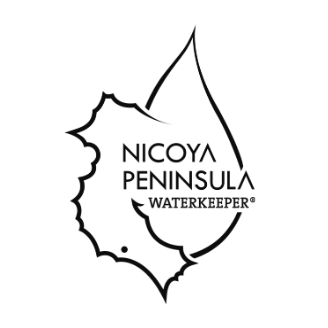Describe your organisation, its vision and mission
Nicoya Peninsula Waterkeeper is a Costa Rican non-profit organisation with the mission to monitor, protect and restore the quality of water in coastal rivers and marine ecosystems between the Natural Reserve of Cabo Blanco and the Caletas-Ario Wildlife Refuge in the south of the Nicoya Peninsula on the Pacific coast of Costa Rica. This is done through research, field work, education, advocacy, and vigilance of the law. It is executed with projects around two major environmental problems: the inadequate management of wastewater and solid waste.
How long have you been a GWP Partner?
Since 2013. We joined GWP to connect the organisation with others at the national level and participate in the processes around Integrated Water Resources Management (IWRM) in the country.
What are the benefits of being a GWP partner?
We consider GWP to have an important potential. We are a community organisation that carries out actions for the protection of water resources - and alliances are important so that we can execute projects together with the regional secretariat and other organisations at the country level and implement IWRM from the local level with GWP’s IWRM strategies and tools.
Please share a challenge facing the management of water resources in your area of expertise.
The main challenge we face is the inadequate treatment of wastewater in the area. Costa Rica is a country that enjoys excellent access to drinking quality water and basic sanitation, however there is a huge lag with only 14% of wastewater treatment. The causes are varied, but mainly due to a lack of state investment, institutional weaknesses, gaps in legislation and monitoring of compliance with the law. Which translates to a lack of adequate surveillance, including the granting of permits, construction and proper operation and maintenance of sanitation facilities both in homes and businesses.
Our organisation addresses this problem from the legal side by presenting and following up on pollution complaints and monitoring the water quality of rivers and seas. In addition, from the preventive side with projects that seek to sensitize and advise the inhabitants to solve these problems individually, we also aspire to achieve collective sanitation solutions together with the various community and institutional actors.
Has the COVID-19 situation impacted your work?
At the beginning, the pandemic brought "positive" impacts, from a technical perspective, because the temporary closure of the shops drastically decreased the amount of pollution that was coming directly from the businesses to the rivers in the area. Once the economic reactivation began and businesses reopened their doors, the exponential increase in pollution that we measured in the rivers was evident. The consequences of COVID-19 have highlighted the negative impact of incorrect wastewater treatment on water quality.
Are there any special projects or initiatives that you would like more widely known?
We have a project that captures our vision for the area, called “Ocean Friendly Business”, in which we provide support, training, and advice on how to reduce waste, to local businesses such as restaurants, hotels, and home rentals. The businesses that are part of the project commit to addressing their wastewater treatment, adequate disposal of recyclable and organic solid waste, in addition to the elimination of single-use plastics, among other things.
Once businesses improve their practices, they are awarded a certificate that recognises them as an Ocean Friendly Business. It is a voluntary and free certification project that aims to reduce pollution and the negative impact of the tourism sector on the environment. We hope to continue counting on the support of various partners to further amplify the scope of this project.


